BULLYING
WHAT IS BULLYING?
Bullying is when someone is picked on by a person or group. Bullies might make fun of people whom they think don't fit in. Bullies might make fun of others for many things, including:
-
appearance (how someone looks)
-
behaviour (how someone acts)
-
race or religion
-
social status (whether someone is popular)
-
sexual identity (like being gay, lesbian, or transgender)
TYPES OF BULLYING:
Bullying can come in different types:
-
Physical bullying is when bullies hurt their targets physically. This might be shoving, tripping, punching, or hitting. Any form of touching that a person does not want can be bullying and possible sexual assault.
-
Verbal bullying is taunting or teasing someone.
-
Psychological bullying is gossiping about or excluding people to make them feel bad about themselves.
-
Cyberbullying is when bullies use the internet and social media and say things that they might not say in person. This can include sending mean texts, posting insults about someone on Twitter, or making rude comments on their Instagram pictures. Cyberbullies also might post personal information, pictures, or videos designed to hurt or embarrass someone else.
Ignoring bullying won’t make it go away. You need to tell someone about what is happening.
TEASING VS BANTER VS BULLYING:
Teasing and banter between friends can be fun, and when everyone is in on the joke and enjoying themselves. It can move into bullying when someone is upset, hurt or offended, and the other person refuses to stop. For example, if someone keeps teasing you about something even if they can see you are no longer finding it funny, it is moving towards bullying behaviour. Another form of banter that can move into bullying behaviour (and sometimes prejudicial behaviour and even harassment) is when friends pick on a physical trait or a characteristic of someone in the group and use this as a focus of jokes or comments (e.g., someone’s weight, skin colour, ethnic background, religion, sexuality, gender). You may feel under pressure to laugh, but these types of comments or jokes (even if you are not personally offended), creat
WHAT TO DO IF YOU'RE BEING BULLIED?
If the bullying is happening at school:
-
Talk to your parents or carers and your teacher. Your teacher may have no idea that you are being bullied, and the school will have an anti-bullying policy to tackle it.
-
If you feel you can’t speak to your teacher, maybe a friend can do it for you. You can also speak to a school counsellor, welfare officer or nurse.
-
In extreme cases, if bullying is interfering with your education it may be possible for you to change schools if it doesn’t stop once you have reported it.
If the bullying is happening outside school:
-
Talk to your parents or carers, close relatives such as grandparents, aunties and uncles, or even your friends’ parents. Youth workers and leaders may be able to help too. You can also talk to your teacher the next day and they will help get you support.
If the bullying is happening online:
-
Tell a trusted adult – your parents or carers, or a teacher. You can report abusive posts on Facebook and other social media platforms. You can also report abuse to CEOP (Child Exploitation and Online Protection Centre).
WHAT CAN HELP?
'Self-help' tips don't solve the issue. However, they can help you/others feel more in control when experiencing strong emotions.
If you find that 'self-help' isn't enough, consider reaching out to a counsellor or your GP for help managing overwhelming emotions.
01
It can be tempting if you are being bullied to retaliate – to send a horrible message back to someone, to try and embarrass and hurt the other person, or to fight back. This is not a good idea – you might end up getting into trouble or get yourself even more hurt.
02
Keep a record of what happened, when it happened, and who was involved. If the bullying is online, keep the evidence – save or copy any photos, videos, texts, emails or posts
03
You don’t have to be friends with everyone – but you should always show respect, make it clear that you don’t like it when people bully others, and stick up for people who are having a hard time.
04
Share your concerns with someone you trust Explain that you need their help to talk through the situation and to come up with a plan so that the bullying situation stops.
05
Always put your safety first. If someone has hurt you or is threatening to hurt you then get help. Get out of the situation as soon as you can. Look for an adult who can help and find a safe place. Dial 999.
06
Talk to a friend Surrounding yourself with good friends is one of the best ways to prevent bullying
07
Learn assertiveness skills. Using an assertive style of communication in a bullying situation can make a big difference, as you are standing up for yourself, showing that you respect yourself and others equally, and that you will not let the situation continue
08
If you see others being the victim of bullying report it. The victim may not feel capable of doing so, however it is never ok to stand by and watch.
09
In the short term do what you can to stay away from the people doing the bullying. Sit, stand, or travel to school with people you trust. If they are calling you names remember that there is nothing wrong with you. It is the people doing the bullying that have the problem, not you
10
Keep reporting the bullying until it stops. It may not stop the first time you tell your parents or teacher and they try to stop it. If the bullying continues, tell them again. Don’t put up with it. No one deserves to be bullied.
EXTERNAL INFORMATION, SUPPORT AND ADVICE






















































 |  | 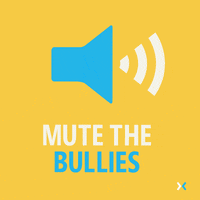 |
|---|---|---|
 |  | 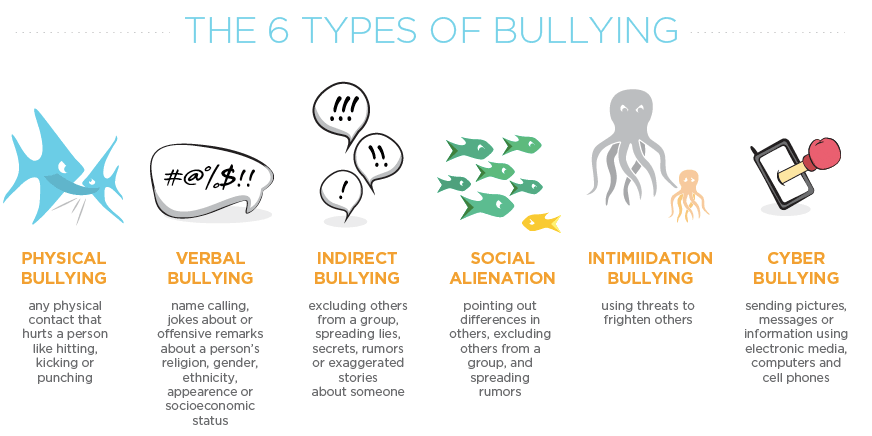 |
 |  |  |
 |  |  |
 |  |  |
 |  |  |
 |  |  |
 |  |  |
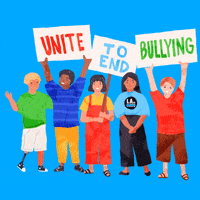 |  |  |
 |  | 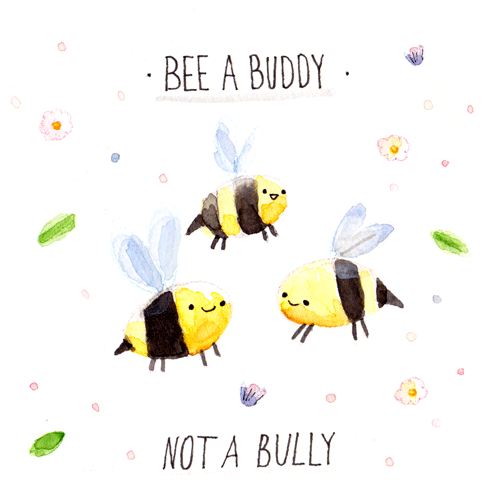 |
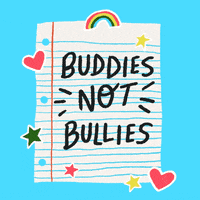 |  |  |
 |  |  |
 |  |  |
 |

